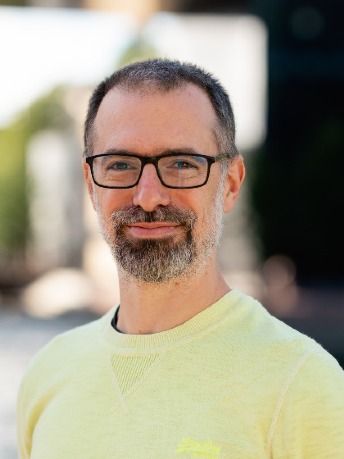3.3 million for improving online participation platforms

Professor Davide Grossi of the University of Groningen (Faculty of Science and Engineering) has been awarded a Horizon Europe grant of 3.3 million euros to improve technology used in democratic processes. This involves open source software that can be used at multiple levels of government: from local to national and transnational.
Grossi is collaborating in this research project with an international and interdisciplinary consortium of six academic partners and three societal partners. The three-year project will start January 1.
Developing new methods
More and more civil society organizations and governments are using online participation platforms to enhance the legitimacy of policy decisions. At the same time, there is a lack of evidence-based methods to design, assess and validate this technology. The consortium will develop these methods by analyzing and testing existing open-source software. Part of the project is to compile a library of best practices and recommendations for the design and implementation of online participation platforms.
Democracy is complex. It is what enables societies like ours, consisting of millions of individuals, to make collective decisions and govern themselves. There is no single academic discipline that can tame this complexity alone.
Interdisciplinary approach
With their interdisciplinary approach, the consortium integrates methods and concepts from democratic theory, social science and computer science. Grossi underlines the importance of this: ‘Democracy is complex. It is what enables societies like ours, consisting of millions of individuals, to make collective decisions and govern themselves. There is no single academic discipline that can tame this complexity alone.'
Horizon Europe
Horizon Europe is the EU's main funding program for research and innovation. It tackles climate change, helps achieve the UN Sustainable Development Goals and boosts EU competitiveness and growth. This project falls under the Global Challenges pillar, focusing on the major challenges facing the EU and the world.
Davide Grossi works at the Bernoulli Institute for Mathematics, Computer Science and Artificial Intelligence and the Rudolf Agricola School for Sustainable Development .
| Last modified: | 29 October 2024 6.21 p.m. |
More news
-
03 April 2025
IMChip and MimeCure in top 10 of the national Academic Startup Competition
Prof. Tamalika Banerjee’s startup IMChip and Prof. Erik Frijlink and Dr. Luke van der Koog’s startup MimeCure have made it into the top 10 of the national Academic Startup Competition.
-
01 April 2025
NSC’s electoral reform plan may have unwanted consequences
The new voting system, proposed by minister Uitermark, could jeopardize the fundamental principle of proportional representation, says Davide Grossi, Professor of Collective Decision Making and Computation at the University of Groningen
-
01 April 2025
'Diversity leads to better science'
In addition to her biological research on ageing, Hannah Dugdale also studies disparities relating to diversity in science. Thanks to the latter, she is one of the two 2024 laureates of the Athena Award, an NWO prize for successful and inspiring...
